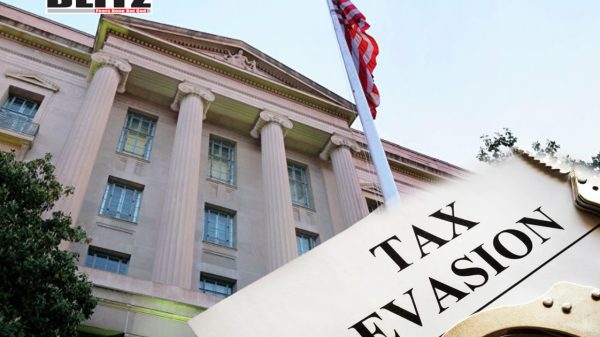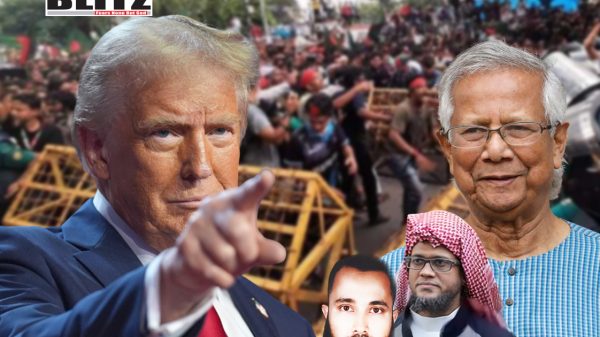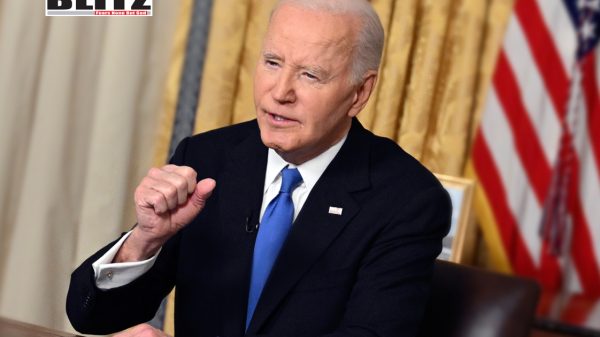BJP accuses Congress of using ‘Soros playbook’ to destabilize
- Update Time : Saturday, January 18, 2025

In the latest episode of escalating political tensions in India, the Bharatiya Janata Party (BJP), led by Prime Minister Narendra Modi, has accused the opposition Indian National Congress of following what it calls the “Soros playbook” to destabilize the country. The allegation stems from Congress leader Rahul Gandhi’s recent statement claiming that his party is “fighting the Indian state.” The BJP has leveraged this statement to intensify its rhetoric against Congress, accusing it of aligning with foreign interests and anti-national elements.
The controversy began when Gandhi, during the inauguration of the Congress party’s new headquarters in New Delhi, criticized the BJP and its ideological parent organization, the Rashtriya Swayamsevak Sangh (RSS). He accused them of “capturing all institutions” in the country and claimed that Congress was fighting not only the BJP and RSS but also the “Indian state itself.”
This bold statement drew sharp criticism from BJP leaders, with party president J.P. Nadda stating that Gandhi’s words revealed the “ugly truth” about Congress. “His repeated actions have also strengthened this belief. Everything he has done or said has been in the direction of breaking India and dividing our society,” Nadda said in a social media post.
The BJP has further accused Congress of having “close links” to anti-national elements and international organizations seeking to destabilize India. Nadda and other BJP leaders have drawn parallels between Gandhi’s comments and the strategies allegedly employed by Hungarian-American billionaire George Soros, who has been a frequent target of the ruling party’s criticism.
The BJP claims that Soros has funded organizations and movements critical of Modi’s government, often citing the Hungarian-American financier’s comments at the 2023 Munich Security Conference. During the conference, Soros referred to allegations of financial fraud involving the Adani Group, a major Indian conglomerate with close ties to Modi, and suggested that such allegations could weaken Modi’s grip on power.
Since 2023, the BJP has consistently portrayed Soros as an external threat to India’s sovereignty. Following his remarks at the Munich Security Conference, India’s Ministry of External Affairs described Soros as “old, rich, opinionated, and dangerous” for using his wealth to influence narratives in other countries.
This narrative gained further traction with the BJP’s criticism of the Organized Crime and Corruption Reporting Project (OCCRP), an investigative journalism network partially funded by Soros’ Open Society Foundations. In August 2023, the OCCRP published reports alleging financial misconduct by the Adani Group, leading the BJP to claim that Soros was orchestrating a campaign to defame India’s government. Although the OCCRP’s reports were based on months of investigation, the BJP dismissed them as part of a broader “conspiracy theory” involving foreign actors.
The Congress party has repeatedly denied any links to Soros or his organizations. Party spokesperson Supriya Shrinate countered the BJP’s allegations by pointing out that the Indian government itself is the fourth-largest donor to the United Nations Democracy Fund, which supports various global initiatives, including some linked to Soros’ foundations.
Shrinate also accused the BJP of weaponizing unfounded conspiracy theories to divert attention from pressing domestic issues, such as inflation, unemployment, and alleged corruption involving the Adani Group. She labeled the BJP’s allegations as “baseless and desperate attempts to malign the opposition.”
The accusations against Congress and its alleged ties to Soros have intensified in the lead-up to the 2024 parliamentary elections. Despite failing to secure a clear majority on its own, the BJP-led National Democratic Alliance (NDA) managed to win the election with 293 seats in the Lok Sabha, giving Modi a third consecutive term as prime minister.
Throughout the campaign, the BJP focused heavily on national security and patriotism, painting opposition parties as collaborators with foreign entities. This strategy appears to have resonated with a significant portion of the electorate, although critics argue that it stifles legitimate dissent and undermines democratic discourse.
In December 2024, the BJP cited a report by the French investigative outlet Mediapart to bolster its claims of foreign interference. The report alleged links between the OCCRP and US government funding but did not specifically mention India. Nevertheless, the BJP extrapolated from the report to allege that Soros and the US Department of State were backing efforts to destabilize Modi’s government. Mediapart later accused the BJP of distorting its findings to promote a “conspiracy theory.”
The BJP’s accusations against Congress and its rhetoric around foreign interference highlight a growing trend in Indian politics: the use of nationalism as a tool to discredit political opponents. By framing opposition leaders as agents of foreign powers, the BJP seeks to consolidate its support base and delegitimize dissent.
However, this approach has also raised concerns about the erosion of democratic norms in India. Critics argue that equating political opposition with anti-national activities creates a climate of fear and suppresses free speech. It also diverts attention from substantive policy debates, reducing elections to a contest of narratives rather than ideas.
The BJP’s allegations against Soros mirror similar claims made by other right-wing governments worldwide. Soros has long been a polarizing figure, with supporters praising his philanthropic efforts to promote democracy and human rights, and detractors accusing him of meddling in the internal affairs of sovereign nations.
In India, Soros has become a convenient scapegoat for the BJP to explain criticism from international organizations and media. By linking opposition parties and investigative reports to Soros, the ruling party can deflect scrutiny and rally nationalist sentiment.
The BJP’s accusation that Congress is using a “Soros playbook” underscores the highly polarized nature of Indian politics today. While the ruling party continues to frame its opposition as agents of foreign interests, Congress has denied these claims and accused the BJP of manufacturing conspiracies to silence dissent. As India’s democracy faces increasing internal and external pressures, the debate over foreign influence and national sovereignty is likely to remain a contentious issue in the years to come.












Leave a Reply